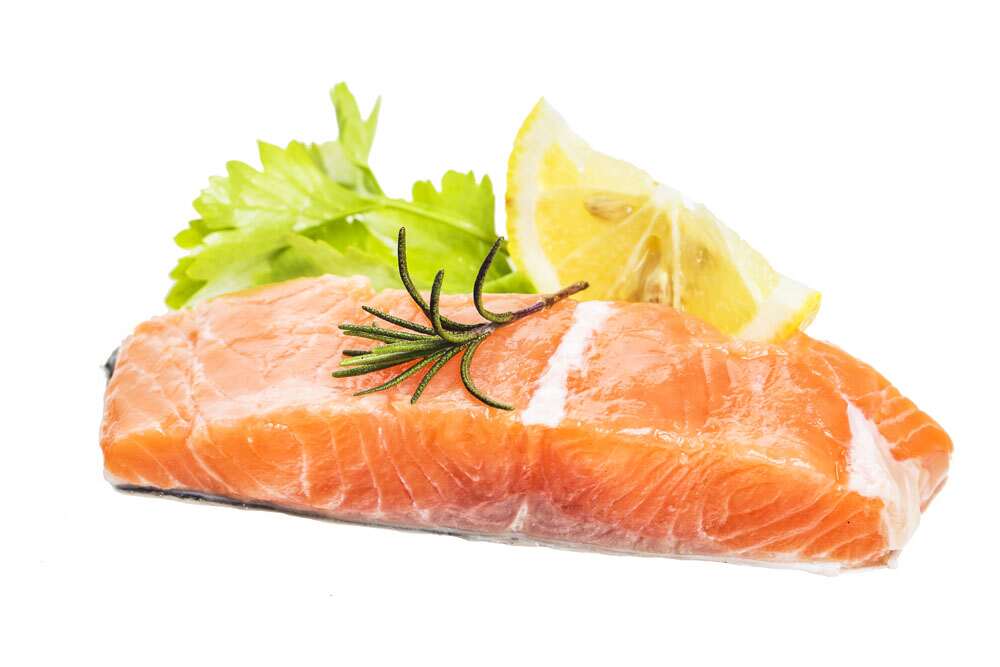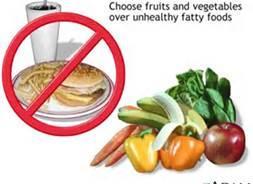Risk Factors and Prevention
Prostate Cancer Diet
Deana L. Cox, RD, LD, CNSC *)
There are many risk factors for prostate cancer. Some are within our control, and some are not. Diet and lifestyle are two things that are very much within our control. Although no single nutrient has been conclusively identified to lower prostate cancer risk, good nutrition, exercise, and weight maintenance can help to lower risk for many chronic diseases. Research over the past several years has shown promising results with regard to nutrition and prostate cancer. We have indications that some nutrients may decrease prostate cancer risk, decrease risk of recurrence, and help slow disease progression.
Let’s start with the basics:
Choose lean meats, fatty fish, whole grains, low saturated fat options, limit processed and refined foods, cut out candy, sodas and junk, and load up on fruits and veggies.
The fact is we all need to eat more fruits and vegetables. Why, you may ask? Because most of our major cancer fighting nutrients are found in plant foods!
Some particular nutrients have shown great benefits with regard to prostate cancer:
Lycopene
- Powerful antioxidant found in tomatoes, watermelons, pink grapefruits, guava, and papaya
- Tomatoes are the best source
- Cooked tomatoes are best because, unlike many other nutrients, lycopene is released into a better form by cooking
Cruciferous Vegetables
- Broccoli, cauliflower, cabbage, Brussels sprouts, bok choy, and kale
- Contain a compound called Sulforaphane
- Helps the body clean up the damage caused by carcinogens, helping to slow down cancer growth
Polyphenols
- Green tea, red wine, pomegranate juice
- Interrupt the growth pathways of cancer cells
- Inhibit tumor cells from forming new blood vessels needed for growth
Vitamin D
- The active form (1,25(OH)2D3) may protect against growth of prostate cancer cells
- The Physicians’ Health Study showed that men with high blood levels of vitamin D had a reduction in risk for
- Development of aggressive prostate cancer as high as 45%.
Fatty Fish
- Salmon, sardines, herring, mackerel, albacore tuna, lake trout
- Contain DHA and EPA (omega-3 fatty acids)
- May decrease prostate cancer risk
- Goal of 3 servings per week
Same benefit has not been proven with supplementation
Some particular nutrients have shown great benefits with regard to prostate cancer:
ALA (alpha-linolenic acid)
- Omega-6 fatty acid contained in red meat and flax
- Has been shown to increase prostate cancer risk
- Current recommendations are to avoid flax seed oil, and limit red meat
- ALA is an essential fatty acid, so complete elimination from the diet is not recommended
- Occasional consumption of red meat or items made with flax is okay
Heterocyclic amines
- Carcinogen found in grilled meats such as beef, pork, chicken, lamb, and fish
- Exposure to high levels have demonstrated increased prostate cancer risk in laboratory animals
- It has been suggested that lowering grilling temperatures, and to avoiding charring by turning more often can
- Lower exposure
Calcium
- A recent study indicated that too much calcium can increase prostate cancer risk
- Too much calcium can reduce vitamin D levels
- However, both calcium and vitamin D play important roles in bone health
- Osteoporosis is increasingly seen in men with prostate cancer who are undergoing hormone therapy
- The key is adequacy without over-supplementation.
- Talk to your doctor or dietitian as to your personal needs.
Other Nutrients of Interest:
Beta-Carotene
- One large, long-term study showed that beta-carotene supplementation in men with low blood levels may
- Decrease the risk of developing prostate cancer
- Another showed that it can increase the risk of lung cancer
Vitamin E
- Studies have shown that vitamin E supplementation may decrease the risk of developing and dying of prostate cancer.
- At this time it seems to be most effective in men who are smokers.
Selenium
- Recent studies have shown that although consumption of selenium has been associated with lower prostate cancer risk, the benefits may differ depending on each person’s PSA level.
Zinc
- One study showed that high doses of zinc may increase the risk of developing prostate cancer.
- Another study showed that zinc may improve outcomes in men with age-related macular degeneration.
- Moderation is the key for this nutrient.
Supplementation vs. Real Food
- Real food is always best.
- Only supplement what is lacking or what is deemed necessary by your MD.
- Keep in mind that we live in the age of food fortification and over-supplementation is a real threat.
- It is impossible to get all of the goodies in whole foods from any type of pill.
Keys to success
- The keys to any good, healthy diet are variety and moderation
- Small changes made over time are better for long term success
- Exercise is an essential component of an overall healthy lifestyle
- Don’t be afraid to ask for help!
*) Gastrointestinal Oncology, Baylor University Medical Center, Dallas




